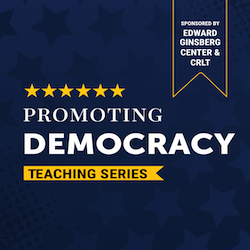It's a common challenge: A student answers a question in class. But the answer is wrong. How do you respond?
![]() When there are definite right and wrong answers, it's important that instructors provide clear feedback on student responses so that the class knows which answers are right, which are wrong, and which are somewhere in between. Often, a wrong answer gives some insight into how students are thinking about the question, and provides an opportunity to lead the students to a better answer. Of course, you also want to communicate that the student's answer is appreciated, and maintain a safe space for students to contribute answers in the future.
When there are definite right and wrong answers, it's important that instructors provide clear feedback on student responses so that the class knows which answers are right, which are wrong, and which are somewhere in between. Often, a wrong answer gives some insight into how students are thinking about the question, and provides an opportunity to lead the students to a better answer. Of course, you also want to communicate that the student's answer is appreciated, and maintain a safe space for students to contribute answers in the future.
We've located some resources from teaching centers around the country with suggestions for how to handle wrong answers. Some of the best suggestions include:
Consider probing for more information, especially if the answer is vague or simply incomplete. For example, "Can you give me an example?" or "Can you explain how you got to that answer?" For more ideas like these, see this page at University of Delaware Center for Teaching and Learning. They note that these responses can (and should!) also be used when a student gives a correct answer.
If some part of the answer is correct, highlight that, and identify where the error is. You might say, "You’re generally right regarding X and that’s great; but you're wrong regarding Y. Now we need to correct Y so we have a fully accurate answer." For more ideas in this vein, visit Berkeley's Center for Teaching and Learning.
Here are some other ideas for common situations:
- When a student's answer reveals a common misconception, take the opportunity to clarify: "Thanks for giving it a try -- that's a really common misconception (or typical mistake). Let's see why....."
- If a key piece of information is missing, point out the additional facts that need to be considered, as in: "Actually, these were taken several miles apart in different ecosystems, so that is not the case" (a suggestion from University of Oregon's Teaching Engagement Program).
- Would it be helpful for you to know how other students would answer? Consider simply thanking the student who answered incorrectly and inviting additional responses: "Who else would like to respond?" After hearing from one or more additional students, be sure to work through any misunderstandings, and clearly identify the correct information.
What strategies have you found effective for handling incorrect answers in your classes? Feel free to share them in the comments section.
- Log in to post comments
- 8821 views






